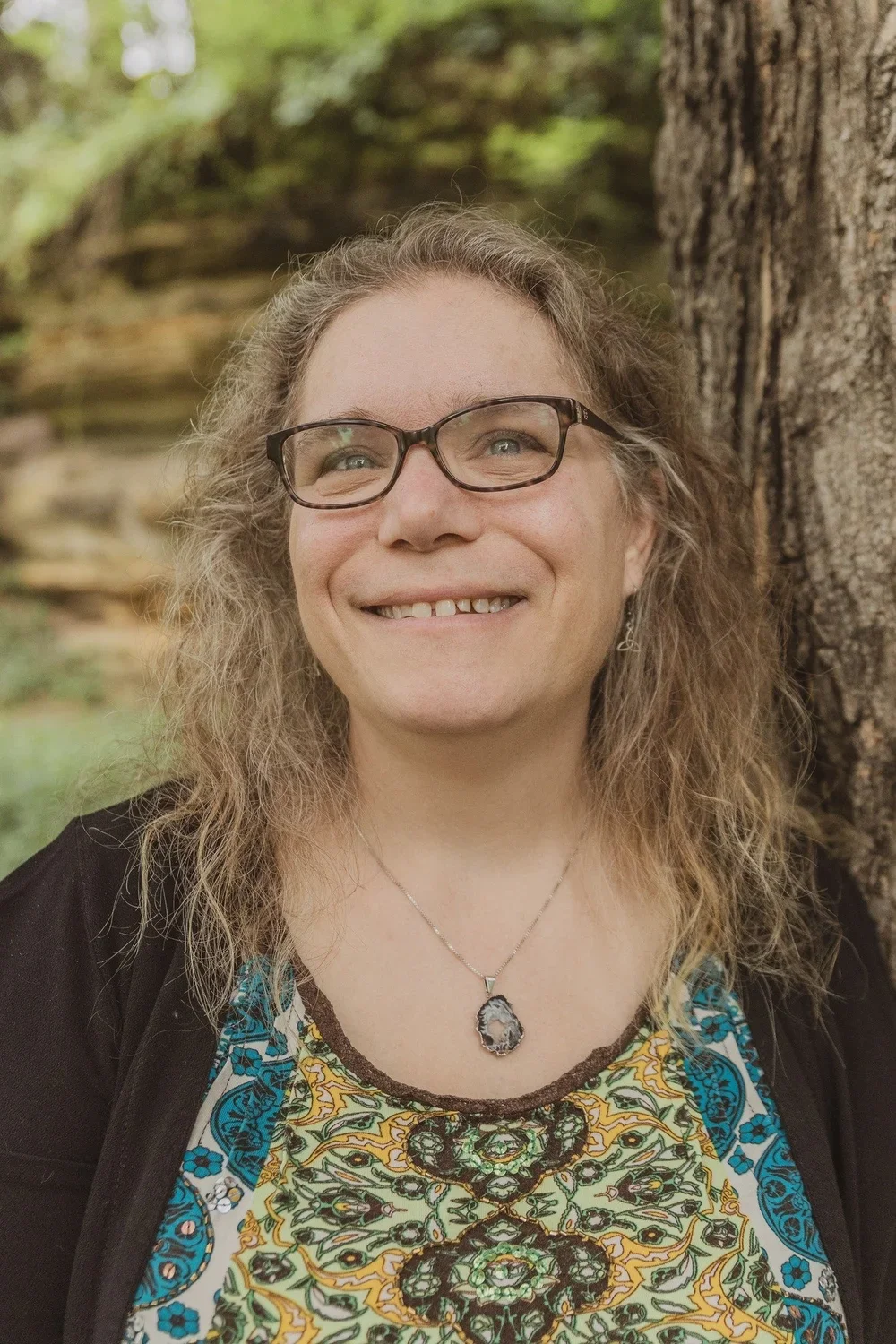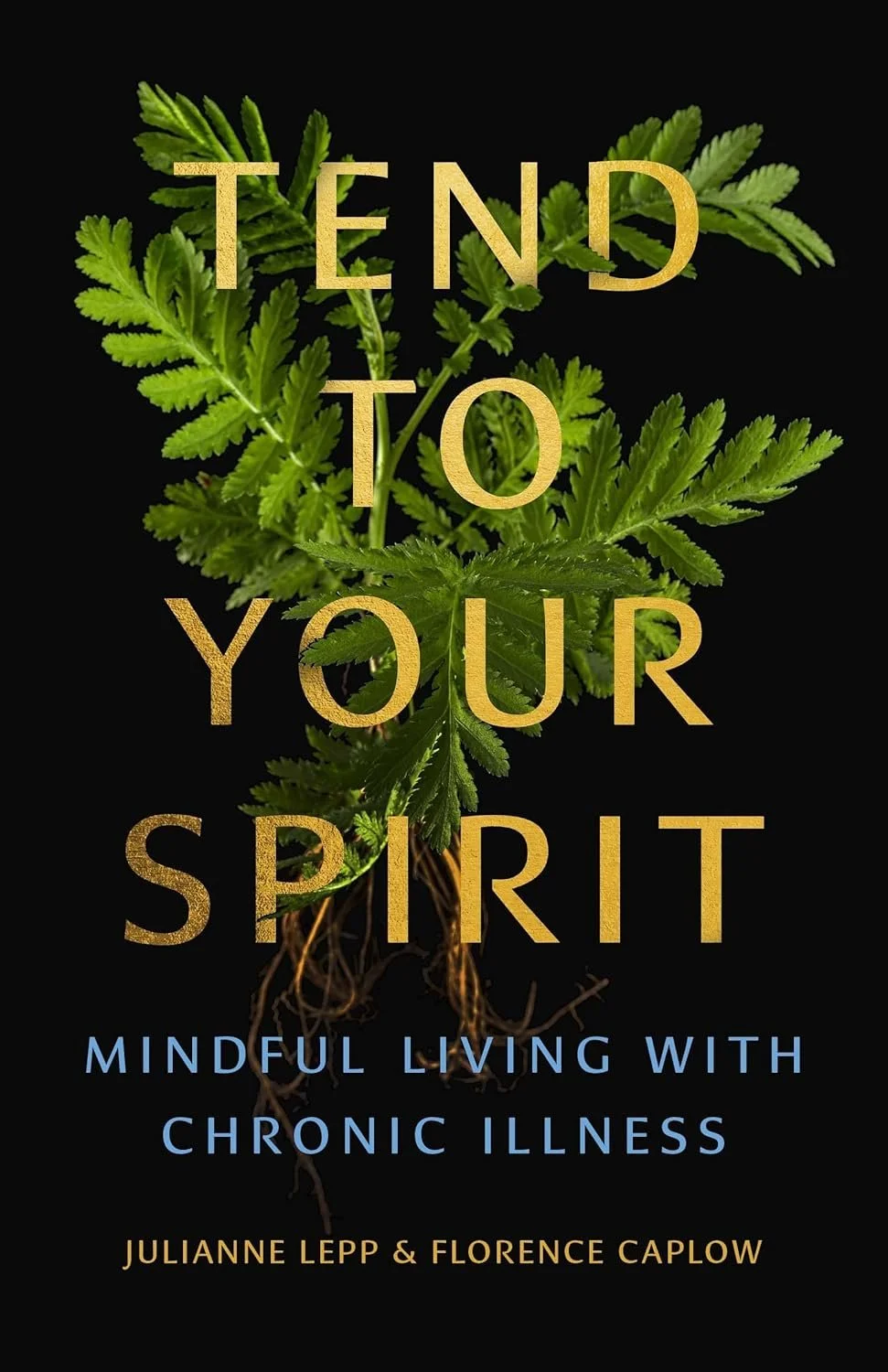Elva Crist
Sometimes significant growth and connection can emerge from pain. On October 14, Eau Claire writer Julianne Lepp will release her new book, Tend to Your Spirit: Mindful Living With Chronic Illness, which speaks to this very issue. Lepp cowrote this exploration of chronic pain with Florence Caplow, a fellow Unitarian Universalist minister and author.
Since both Lepp and Caplow live with chronic illness, they have collaborated to use their writing abilities, personal experiences, and spiritual knowledge to fill the void in the literary world for an interfaith and dynamic guide to living with chronic illness. Tend To Your Spirit is not your traditional book. Rather than focusing on a linear narrative created through text, it features such diverse elements as essays, playlists, poems, quotes, and more. Structured around the four seasons, this uniquely grounded and holistic project is ideal for those seeking to grow and heal through connection with their environment, community, and themselves. To the authors, the seasons represent the cyclical process of healing, and are a reminder to seek answers and meaning in the world around us. In writing Tend to Your Spirit, Lepp and Caplow seek to connect the experience of chronic pain with larger cycles of life.
Read the excerpted interview below to learn more about Lepp’s insight on writing, community, and the collaborative process.
Elva Crist: How did the idea for writing this book emerge?
Julianne Lepp: Well, my coauthor and I met during the pandemic and we both were diagnosed with rheumatoid arthritis around the same time, and we’re both Unitarian Universalist ministers...during the pandemic everybody was struggling so with the onset of really painful and scary illness, we found each other in an online forum and started supporting each other over a year or two. And then as we got to know each other better, we decided that more people needed this kind of support...We really tried to make it for a very wide audience so it could help touch and change people’s lives.
EC: What was the process of writing in collaboration with Florence Caplow?
JL: We sat down and decided the layout of how we wanted to approach the book, and we thought that seasons were a really good way of looking at chronic illness because each day can be different, and the seasons of our lives, and it had so many metaphors....So we created a spreadsheet, we divided up the seasons, and we decided that we wanted four emotional topics for each season...It took time to figure all this out, but we had a very
structured way of working together. We created a covenant together of how we would work together, how we would treat each other, and how we could be good cowriters.
EC: How did Unitarian Universalism play a role in your philosophy of dealing with the chronic pain and in writing this book?
“To feel worthy and loved and have dignity when you are feeling like you are not doing what you are supposed to be doing is pretty important. ”
JL: One of the focuses of my spiritual tradition is that each person has dignity and worth. As someone who has worked in very high stress jobs—like I’ve been a stockbroker, a minister—I expect my body to cooperate with me, to go 100%, because I want to show up for people and I want to get things done, and I like to be involved in justice work, and out in the community, I’m a mom, a partner. So, I’ve had to learn to lean into the grace of saying, ‘even though I can’t do all the things I used to do, I still have worth and dignity.’ And also, I’ve learned that the deep spiritual sense of love includes everybody, even yourself. To feel worthy and loved and have dignity when you are feeling like you are not doing what you are supposed to be doing is pretty important.
EC: Circling back to the seasons we were talking about, you and Florence Caplow described how you see people reading the book in Seasons Circles, so I was wondering how you see people engaging with this book?
JL: We really saw that at a senior center: maybe someone would want to host a Seasons Circle and go through this with people, or maybe at a congregation, or at a retreat center? It's all about small group support. Because the thing that became incredibly apparent to me is that we live such lives of aloneness when we’re busy. And sometimes it’s very vulnerable to share hard things. I remember when I was a young mom, I had a mom’s group, but when I had this [chronic illness], I had nothing. I mean, had people who cared, but to be able to talk to people who understand... one in four Americans has some sort of chronic illness, and that can start young or old...having community is important.
EC: Is there anything else that you’d like to share about the book or the process?
JL: I think working with a publisher is definitely a dance. You have what you want, they have what they want... You have a lot of ideas about what you think it should be, but you have to negotiate. We were really clear when we pitched this book that we wanted it to have graphics and color and elements because when you are in pain, you don’t want to read a bunch of block text. We have been so pleased with the final book layout and the publisher really came through on that.
EC: The entire concept of the book is really connected to nature, as you mentioned before, so I was wondering if you could elaborate on your relationship with nature. Did that connection impact your experience of dealing with chronic pain?
JL: We bought a house right before the pandemic, and our front yard was all grass, and there were no sounds of crickets. When the pandemic hit, we were home quite a bit, and I was going stir crazy. I needed to touch earth, and I wanted to be closer to nature. So we created a garden labyrinth in the front yard...We also did native plants in the other part of the yard, trying to really change the landscape. When you can’t change your circumstances, being able to cultivate life and beauty and see the cycles of nature is very important. The cool thing about fall, winter, spring and summer is that you get to see that it is okay to rest, its okay to bloom, its okay to relax, its okay to let things go. Pretty much, nature can teach all the lessons you need to know if you are paying attention.
Keep an eye out for the release of this extraordinary book from Skinner House Books, and for an upcoming talk with Lepp at L.E. Phillips Memorial Library on November 4 at 6PM. You can find their events calendar here.


